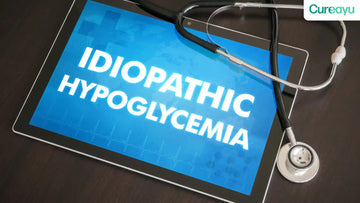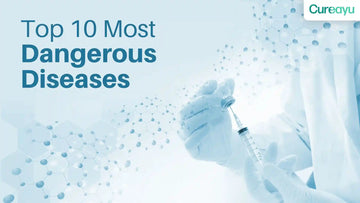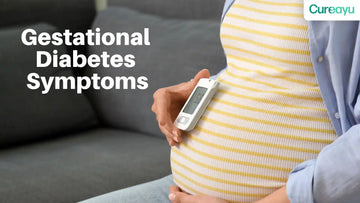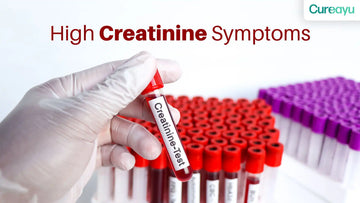When we discuss blood sugar levels, the focus often falls on conditions like diabetes and hyperglycemia. However, it's equally important to understand the condition known as hypoglycemia. Hypoglycemia, defined by low blood sugar levels, can have serious consequences and is a topic that deserves our attention.
Living with hypoglycemia is a daily balancing act for many people, and recognizing the symptoms is crucial for effective management. Whether you’re someone living with diabetes, a caregiver, or simply interested in understanding more about blood sugar regulation, this blog will delve into the intricacies of hypoglycemia symptoms, levels, causes, and treatments.
Also Read: Can Diabetics Eat Banana? Discover How to Safely Enjoy Bananas Without Blood Sugar Spikes
What Is Hypoglycemia?
Hypoglycemia occurs when blood glucose levels drop below the normal range. Glucose is the primary source of energy for our body and, notably, our brain. Typically, hypoglycemia is defined by blood glucose levels below 70 mg/dL. This condition is most commonly associated with diabetes treatment, where insulin or other medications can sometimes lower blood sugar too much. However, hypoglycemia can occur in people without diabetes due to various factors, including certain medications, excessive alcohol consumption, or hormone deficiencies.
Hypoglycemia Levels
Mild Hypoglycemia (50-70 mg/dL)
In this early stage, hypoglycemia can often be self-managed. Symptoms may include hunger, sweating, shakiness, and a sense of anxiety or unease. Quick ingestion of glucose tablets, juice, or sugary snacks can rapidly bring blood sugar levels back to normal.
Moderate Hypoglycemia (40-50 mg/dL)
Moderate hypoglycemia manifests more severe symptoms that may require assistance from others. Symptoms can include mood changes, irritability, confusion, weakness, and blurry vision. At this level, more substantial management, such as eating a carbohydrate-rich meal, is typically needed.
Severe Hypoglycemia (below 40 mg/dL)
Severe hypoglycemia is a medical emergency and requires immediate attention. At this stage, symptoms can include seizures, loss of consciousness, and even coma. Intravenous glucose or an injection of glucagon may be necessary to quickly elevate blood sugar levels.
Also Read: Types of Diabetes: Understanding the Differences, Symptoms, Causes, and Treatments
Hypoglycemia Symptoms
Shakiness and Trembling
One of the first symptoms of hypoglycemia is shakiness or trembling. This occurs because low blood sugar levels can trigger the release of adrenaline, which prepares your body for a burst of action and can lead to shaking muscles.
Excessive Sweating
Sudden and excessive sweating, unrelated to exercise or heat, is another common symptom. It often accompanies feelings of anxiety and shakiness.
Hunger Pangs
When blood sugar drops, your body sends signals demanding immediate fuel, resulting in intense hunger or cravings for sugary foods.
Irritability and Mood Changes
Low blood sugar can cause changes in the brain that manifest as irritability, mood swings, or even aggression. These symptoms can be confusing for both the individual and those around them.
Blurred Vision
Insufficient glucose can affect the optic nerve, leading to blurred vision and difficulty focusing.
Weakness or Fatigue
Low blood sugar levels can drain your energy, causing a feeling of extreme tiredness or weakness.
Hypoglycemia Causes
Diabetes Medications
Insulin or other diabetes medications are common causes of hypoglycemia. These medications help regulate blood sugar but can sometimes cause levels to drop too low, especially if dosages are incorrect or meals are skipped.
Excessive Alcohol Consumption
Drinking alcohol, especially on an empty stomach, can result in hypoglycemia. Alcohol can interfere with the liver's ability to release glucose into the bloodstream.
Hormonal Deficiencies
Certain hormonal deficiencies, such as adrenal insufficiency or hypopituitarism, can cause low blood sugar by disrupting glucose production and regulation.
Prolonged Fasting or Starvation
Extended periods without food restrict your body’s ability to produce glucose, leading to hypoglycemia.
Also Read: Uncontrolled Diabetes: Causes, Complications, and Effective Treatments for Better Health Management
When To See a Doctor
Frequent Hypoglycemic Episodes:
If you frequently experience symptoms of hypoglycemia, seek medical advice. This can indicate issues with your current treatment plan or require adjustments to your diet and lifestyle.
Severe Hypoglycemic Symptoms:
Seek immediate medical attention if you experience severe symptoms like seizures or loss of consciousness.
New Symptoms:
If new symptoms occur, even if they’re mild, consult a healthcare provider to ensure they’re related to hypoglycemia and not another condition.
Adjusting Medications:
If you’re considering changing any medication regimen, consult your doctor to ensure it won't exacerbate hypoglycemia risks.
Hypoglycemia Treatments
Glucose Supplementation
Immediate treatment involves consuming fast-acting carbohydrates such as glucose tablets, fruit juice, or regular soda. This can quickly raise blood sugar levels.
Glucagon Injections
For severe hypoglycemia, glucagon injections are used to stimulate the liver to release stored glucose into the bloodstream.
Lifestyle Changes
For those with frequent hypoglycemia, modifications in diet, meal timing, and exercise habits can help maintain stable blood sugar levels.
Medication Adjustments
Adjusting the dosages of insulin or other diabetes medications under the supervision of a healthcare provider can reduce the risk of hypoglycemia.
Also Read: Why is Sugar Harmful to Your Health and Well-being? Unveiling the Hidden Dangers
Conclusion
Hypoglycemia is more than just a medical term; it is a condition that affects everyday lives and requires careful management and understanding. Recognizing the levels and symptoms of hypoglycemia can enable early intervention and prevent severe consequences. Being aware of the causes helps in taking preventive measures and avoiding triggers. Timely medical consultation and appropriate treatments can manage and control this condition effectively. Ultimately, education and awareness about hypoglycemia can enhance the quality of life for those affected, ensuring they lead healthy and active lives. Stay informed, stay proactive, and always monitor your health for the best outcomes.











